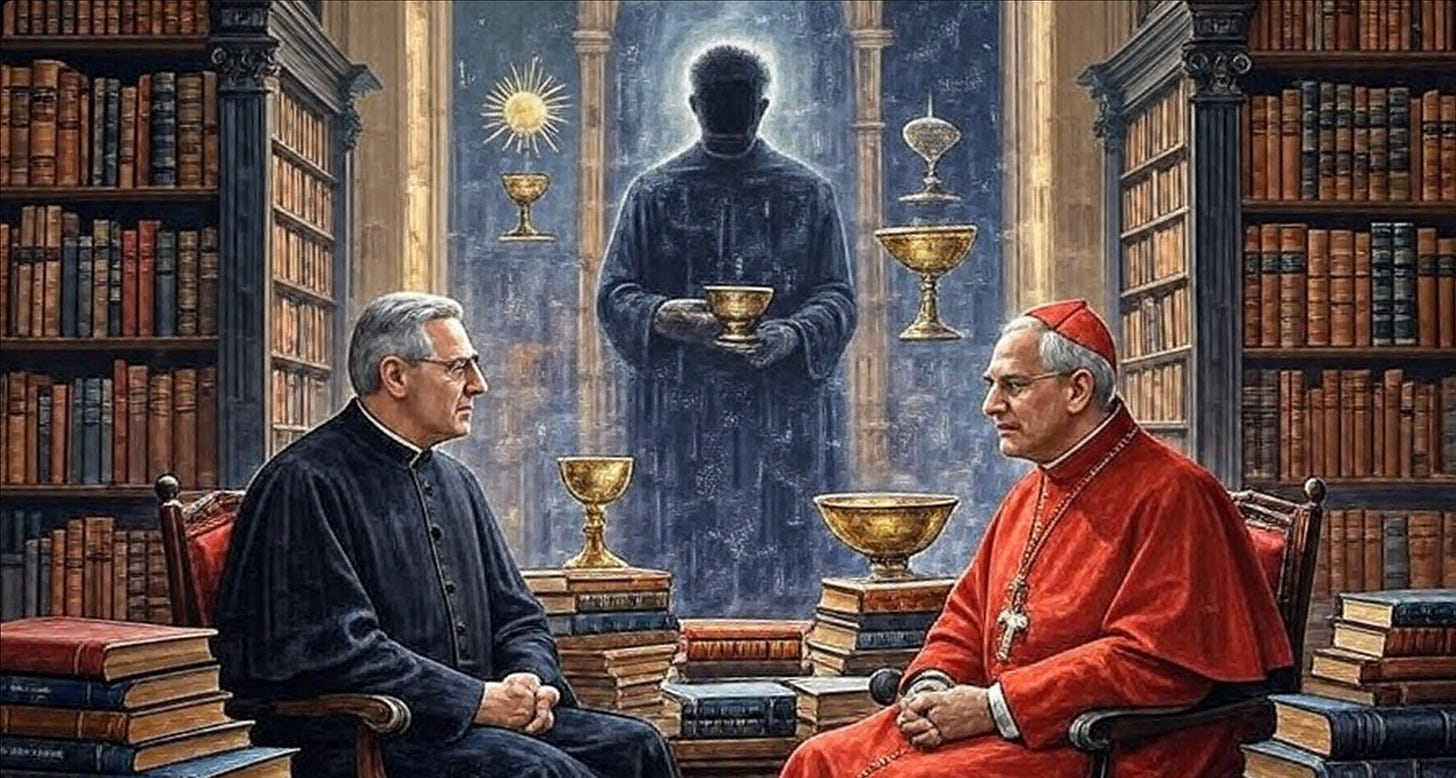The Mysteries of Matter: Incarnation, Embodiment, and the Theology of the Body
Reflections on Bishop Barron and Cardinal Müller's Dialogue – Critiquing Dualism, Materialism, and the Enduring Strangeness of the Physical World Through Christology and Sacramentality.
The recent conversation between Bishop Barron and Cardinal Müller is here. Mark, Katherine and I did some “post-game analysis” here.
Theirs was quite an intellectual workout, taking in the repurposed Kantianism of Karl Rahner, the seeming indestructability of Platonic-Gnostic bad thinking, sacramentality and embodiment, the nihilism of Nietzsche, voluntarism, the many heresies of transgenderism, the perils of ideology and much else.
It’s fair to say that the Enlightenment and its ghastly modernist and post-truth offspring did not emerge unscathed from the Barron-Müller very hands on and old school interrogation.
This was, as you’d expect, beautiful conversation, of the sort you used to find on the BBC before it became addicted to cultural Marxism and its associated grievance ideologies. And the discussion included pauses, moments given over to acknowledge that all theory must in the end return to the facticity and historicity of the life, passion, death and resurrection of Our Lord.
A true Christian theology must be an elaboration of a robust and vibrant (and constantly reaffirmed) Christology, which in turn must be sensitive to the incarnational mystery: that God took on a fully human nature (spirit and body) and entered the temporal order at a particular time and in a specific place. The uniqueness of the Christian argument is that it starts with a person and not an axiom or premise.





